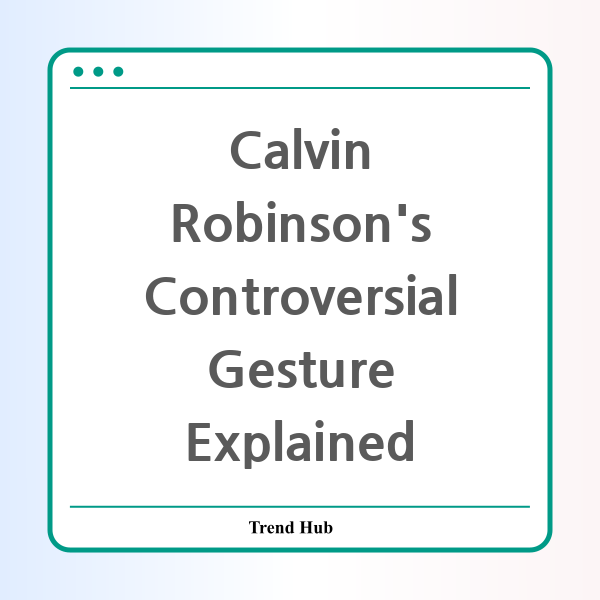* This website participates in the Amazon Affiliate Program and earns from qualifying purchases.

What happens when a joke crosses the line? This question has been thrust into the spotlight following the recent controversy involving Calvin Robinson, a Michigan priest, who was defrocked after making an apparent Nazi salute during a pro-life speech. The incident highlights the complexities of humor, political discourse, and the responsibilities of religious leaders in a polarized society.
On January 25, Robinson, who served as the priest-in-charge at St. Paul's Anglican Catholic Church in Grand Rapids, Michigan, made a gesture that many interpreted as a Nazi salute during the National Pro-Life Summit in Washington, D.C. This moment, intended as a parody of Elon Musk's similar gesture, quickly went viral, drawing both ire and support. In his defense, Robinson claimed his action was merely a joke aimed to mock critics labeling Musk a Nazi for his provocative gestures.
Robinson quoted, "My heart goes out to you," replicating Musk's straight-arm movement to emphasize his point. However, the Anglican Catholic Church did not take his actions lightly. Their statement condemned the gesture, asserting that even as a joke, it trivializes the horrors of the Holocaust and goes against the principles of Christian charity.
The church emphasized the seriousness of Nazi ideology and the unspeakable atrocities committed during this dark chapter of history. They stated that Robinson had previously been warned about the incompatibility of online trolling and provocative gestures with a priest's vocation. His defrocking is seen not just as a response to a singular incident, but as a necessary action to uphold the values of the church and provide a clear message about the consequences of such behaviors.
Robinson, originally from England and known for his outspoken conservative views, took to social media to assert his stance. He stated, "For the record, in case it needs saying: I am not a Nazi," and described his attempt at humor as a piece of dry wit, characteristic of British humor. He clarified that it was not a jest concerning World War II or an admission of any affiliation with extremist views.
The backlash from this incident raises significant questions about the boundaries of humor, especially in the context of sensitive subjects like the Holocaust. In an age where social media amplifies every action and statement, public figures—especially those in positions of authority—are scrutinized regarding the implications of their words and gestures. The debate over free speech and the responsibilities that come with it is especially pertinent.
As we reflect on this event, it becomes clear that the intersection of humor and cultural sensitivity is fraught with challenges. The act of joking about topics rooted in deep historical trauma can alienate communities and detract from the very causes individuals aim to support. In this case, Robinson’s intention to stir dialogue around pro-life issues became overshadowed by the fallout from his actions.
Ultimately, Calvin Robinson's case serves as a reminder of the delicate balance that public figures must maintain when addressing politically charged topics. It brings to light the necessity for accountability, understanding the historical context of certain gestures, and the impact they can have on broader discussions in society. How we navigate these conversations can either build bridges or deepen divides, emphasizing the importance of thoughtful engagement in public discourse.
* This website participates in the Amazon Affiliate Program and earns from qualifying purchases.